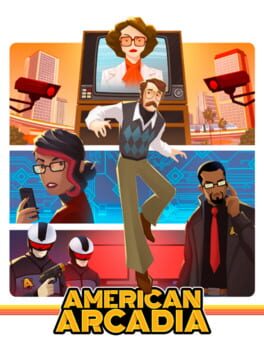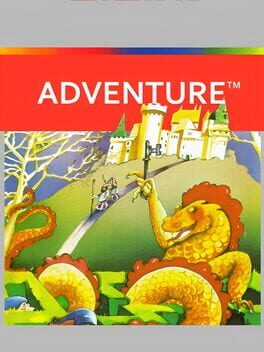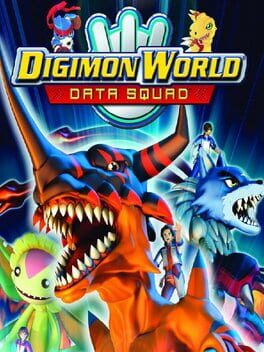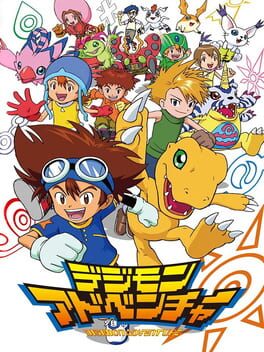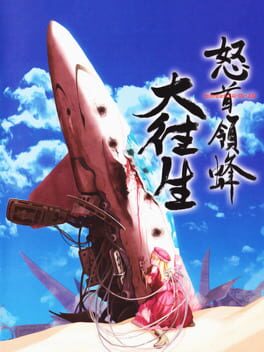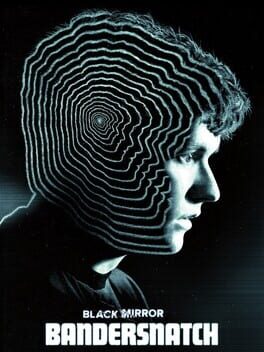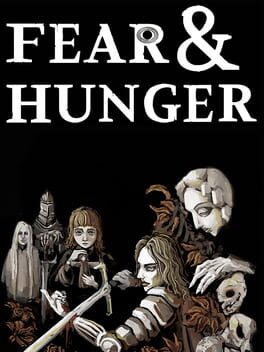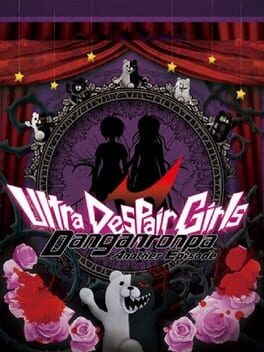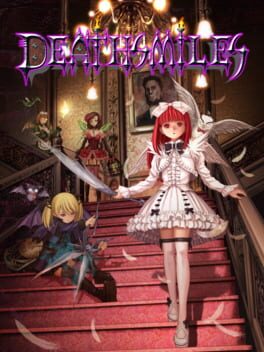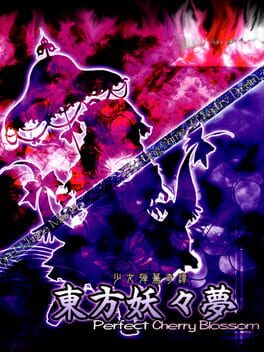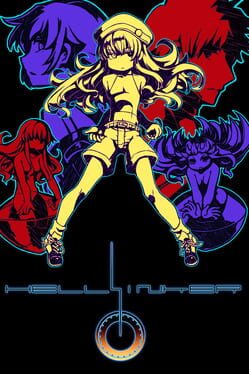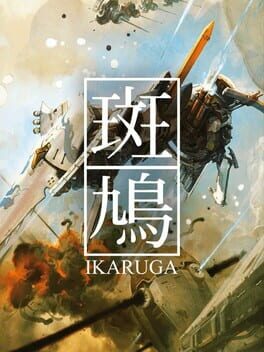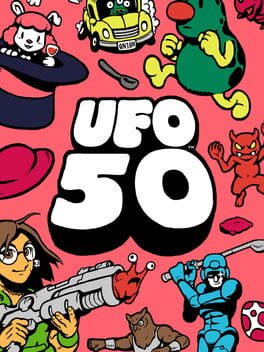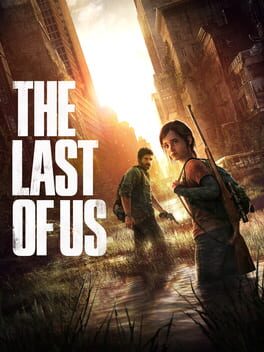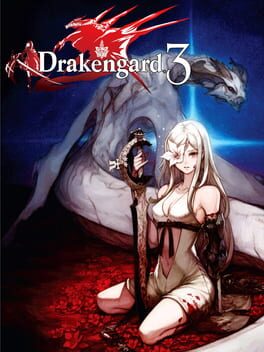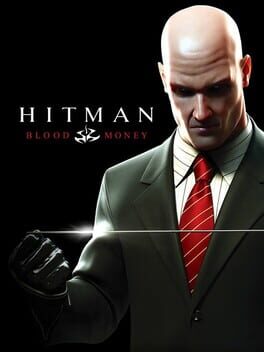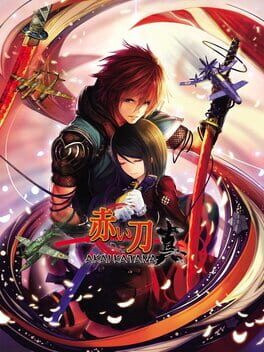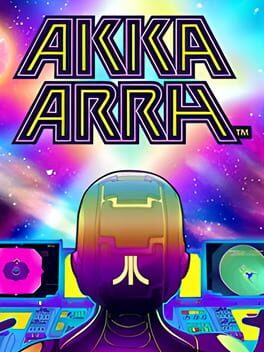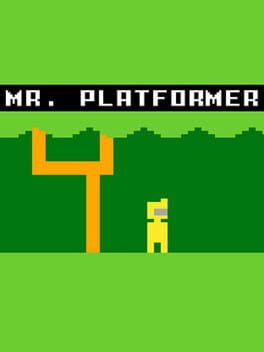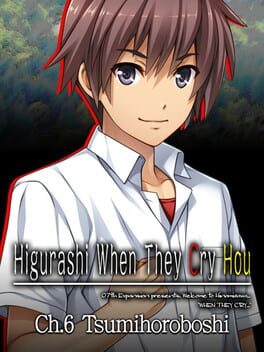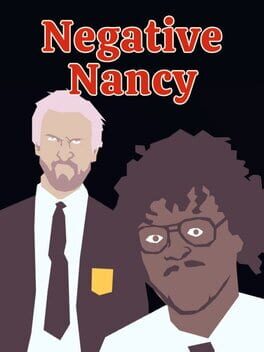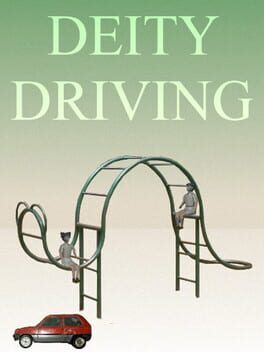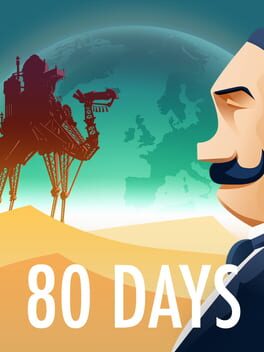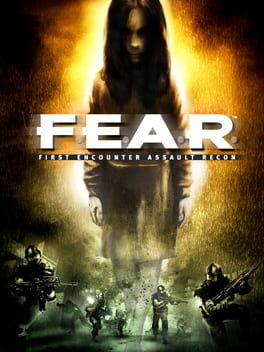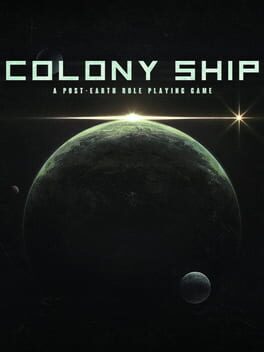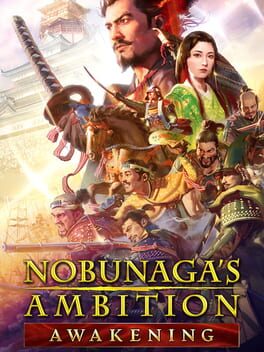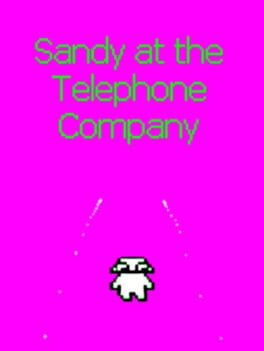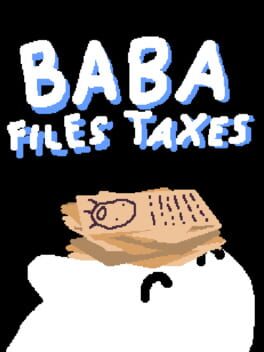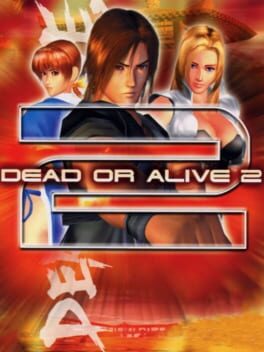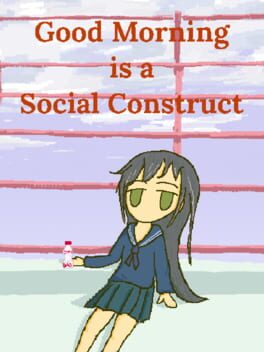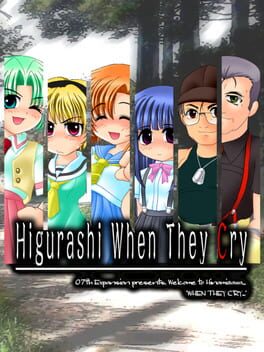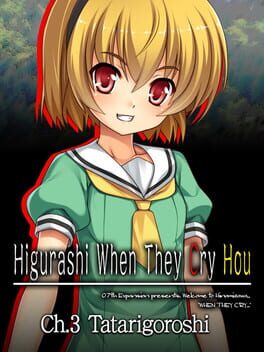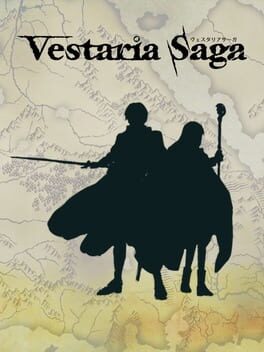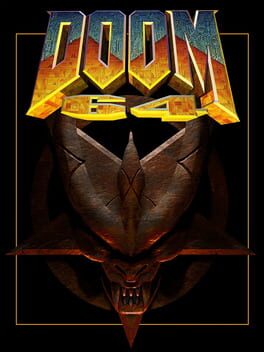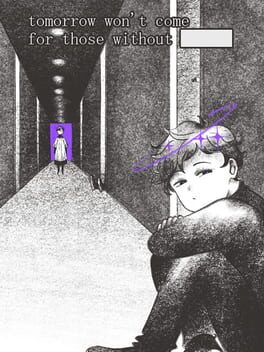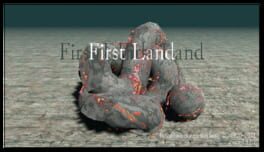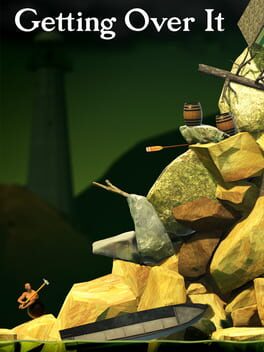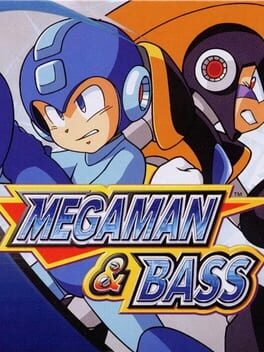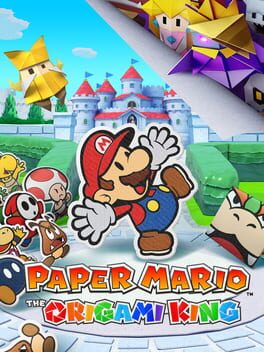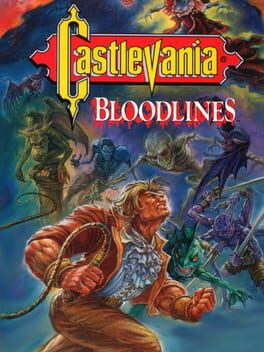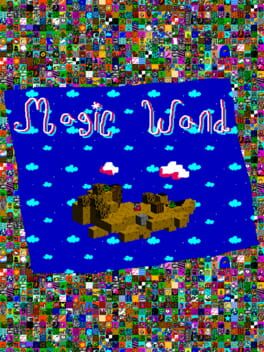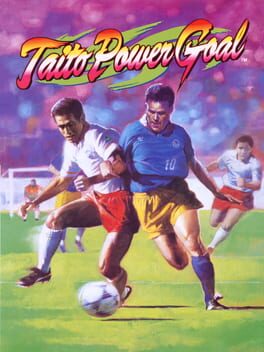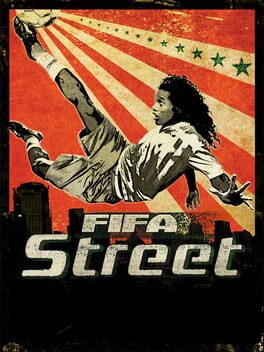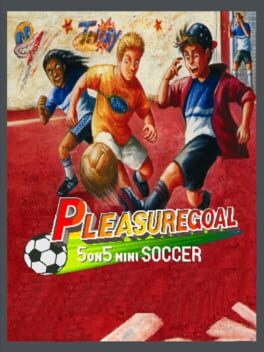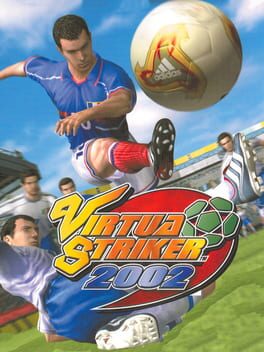SrHoudini
77 reviews liked by SrHoudini
Dragon's Dogma II
2024
La unica queja que puedo tener es la falta de enemigos nuevos grandes, creo que se debio precisamente crea mas nuevos enemigos y sobretodo criaturas grandes e imponentes. Mas haya de eso, pues es todo lo bueno del 1 mejorado (salvo un poco por el agarre en salto ya que se siente el saltar mas pesado y dificil de manejar) y con opciones mas variadas y un escenario a mi parecen mejor y mas interesante. Un gustaso.
American Arcadia
2023
Al final de un juego que tiene plataformas de mentira, sigilo de mentira, puzzles de mentira, una trama distópica haciendo críticas de mentira sobre nada, se revela lo obvio. El juego no tiene ni una pizca de esperanza de que las cosas puedan ir a mejor o de que los seres humanos se comporten como tal, y en los créditos se asegura de mostrar que todo intento de su (pobre y falsa) idea de revolución es devorado por el mercado.
Esto se debe a que es un juego devorado por el mercado, por la tendencia, por la mentira, por hacer porque sí, por ser rentable, porque no cree que los humanos tengan nada que hacer por gusto, porque cree que cualquiera se vende o como poco se acaba engatusando por el mal. En esta secuencia de créditos con tono burlón y desesperanzador, el punto de miseria más alto es uno inesperado y accidental. Entre los mensajes de agradecimiento de los desarrolladores, por lo general nada fuera de lo normal, uno de ellos dedica unas palabras muy sentidas a su madre fallecida recientemente. Después de tantas horas de falsedad choca ver un acto tan escondido y tan humano de la nada, que tarda poco en desaparecer de pantalla mientras una versión ensalzada de ironía de la canción recurrente principal sigue sonando, mientras las imágenes de fondo y la escena post créditos se suceden perpetuando que el ser humano no importa y que no tiene capacidad de empatía ni de amor.
Esto se debe a que es un juego devorado por el mercado, por la tendencia, por la mentira, por hacer porque sí, por ser rentable, porque no cree que los humanos tengan nada que hacer por gusto, porque cree que cualquiera se vende o como poco se acaba engatusando por el mal. En esta secuencia de créditos con tono burlón y desesperanzador, el punto de miseria más alto es uno inesperado y accidental. Entre los mensajes de agradecimiento de los desarrolladores, por lo general nada fuera de lo normal, uno de ellos dedica unas palabras muy sentidas a su madre fallecida recientemente. Después de tantas horas de falsedad choca ver un acto tan escondido y tan humano de la nada, que tarda poco en desaparecer de pantalla mientras una versión ensalzada de ironía de la canción recurrente principal sigue sonando, mientras las imágenes de fondo y la escena post créditos se suceden perpetuando que el ser humano no importa y que no tiene capacidad de empatía ni de amor.
Adventure
1979
The first great triumph of purely videogame adventure is also one of the first great triumphs of abstraction. The power of Adventure goes beyond the evocative, which is no menial thing, but embraces a wholly abstract language to build a world far more robust and plausible than any other that actively attempts to imitate reality.
It is curious for Colossal Cave Adventure to be one of the main sources of inspiration. It isn’t unexpected that it was taken as a source, as there must not have been many successful examples at the time in the search of adventure, but in how the paths diverged, almost reactionary. Adventure gets rid of words altogether to commit to a total physical world. Consequently, contrary to what abandoning immediate realism may imply, the world of Adventure becomes much more intuitive and believable. There is no longer the conflict of having to puzzle out what kind of commands a word processor is able to understand or not in order to move forward, there is instead the discovery of a system that, while allowing itself to be much simpler, is also much more transparent.
You can grab objects and drop them, birds can also carry (and steal) objects, magnets attract objects contained in the same screen, bridges allow you to cross walls (or whatever they are)... All these rules are not broken at any time and lead to a world that, as Tim Schafer says in the Atari 50 Collection, seems alive, that is able to exist even if the player is not present. Thus, birds can carry away a dragon, a key, a magnet attracting a key, or the player can peek sections of the world while traveling defeated in the belly of a dragon. This contributes in two areas: one of wit from being able to use the available elements in our favor to avoid or tackle obstacles, and another of unpredictability, chaos and life, because given the rules the dislocations of all the elements throughout the map during the game are more than certain. There is always a factor that requires improvisation while continuing the discovery.
It’s difficult to explain how well Adventure applies multiple abstractions to its advantage since many of them have been irremediably absorbed by everything that would come after. As Terry Cavanagh understood in Mr. Platformer, paying homage to similar early titles such as Atari 2600’s Pitfall or Montezuma’s Revenge, these first videogame steps that began to understand abstraction also began to use it as a liberating language. Where entering through a door into a fortress was teleporting into a labyrinth, moving past the edge of the screen was discovering a new piece of the world and doing so repeatedly on the same side discovered a spatially impossible loop.
It's a process of genuine discovery because it doesn’t attempt to clumsily replicate reality, but rather to discover new ways of navigating, interacting and understanding a world. And in the face of all these new, impossible and abstract forms remains a strong, direct and unmistakable sensation: Adventure.
It is curious for Colossal Cave Adventure to be one of the main sources of inspiration. It isn’t unexpected that it was taken as a source, as there must not have been many successful examples at the time in the search of adventure, but in how the paths diverged, almost reactionary. Adventure gets rid of words altogether to commit to a total physical world. Consequently, contrary to what abandoning immediate realism may imply, the world of Adventure becomes much more intuitive and believable. There is no longer the conflict of having to puzzle out what kind of commands a word processor is able to understand or not in order to move forward, there is instead the discovery of a system that, while allowing itself to be much simpler, is also much more transparent.
You can grab objects and drop them, birds can also carry (and steal) objects, magnets attract objects contained in the same screen, bridges allow you to cross walls (or whatever they are)... All these rules are not broken at any time and lead to a world that, as Tim Schafer says in the Atari 50 Collection, seems alive, that is able to exist even if the player is not present. Thus, birds can carry away a dragon, a key, a magnet attracting a key, or the player can peek sections of the world while traveling defeated in the belly of a dragon. This contributes in two areas: one of wit from being able to use the available elements in our favor to avoid or tackle obstacles, and another of unpredictability, chaos and life, because given the rules the dislocations of all the elements throughout the map during the game are more than certain. There is always a factor that requires improvisation while continuing the discovery.
It’s difficult to explain how well Adventure applies multiple abstractions to its advantage since many of them have been irremediably absorbed by everything that would come after. As Terry Cavanagh understood in Mr. Platformer, paying homage to similar early titles such as Atari 2600’s Pitfall or Montezuma’s Revenge, these first videogame steps that began to understand abstraction also began to use it as a liberating language. Where entering through a door into a fortress was teleporting into a labyrinth, moving past the edge of the screen was discovering a new piece of the world and doing so repeatedly on the same side discovered a spatially impossible loop.
It's a process of genuine discovery because it doesn’t attempt to clumsily replicate reality, but rather to discover new ways of navigating, interacting and understanding a world. And in the face of all these new, impossible and abstract forms remains a strong, direct and unmistakable sensation: Adventure.
No voy a decir que no me entretuve, pero se ve a jugando que el juego bueno, es eso, un RPG genérico, aunque curiosamente, lo disfruté más porque a x3 en el emulador es más disfrutable, si no es extremadamente lento en sus combates sinceramente. Y eso que es corto en si como RPG. Y admito que le tengo cariño a savers a diferencia de varios que generalmente se quedaron en la 4ta temp y no pasaron de ella.
Digimon Adventure
2013
Sirve como fanservice momentáneo donde incluso dan las megas a los demás, en si, es un RPG normalito de mazmorras normales con jefes y alguna desviación alternativa en la historia, pero eso, la sigue siendo lineal para simoemn sentir el anime jugando, no tiene nada más de especial si lo comparas al combate de los stories, ni el mundo de los world (verdaderos) es eso, entretenidos y fanservice que está ok
DoDonPachi DaiOuJou
2002
[A falta de Black Mirror en Letterboxd, escribo la review de la serie acá]
Hoy terminó la tortura autoimpuesta de ver al completo esta serie. Vi la primer temporada cuando salió y sin parecerme la gran cosa, no me había disgustado. De hecho, le doy crédito al tercer capitulo (el que la gente puede revivir sus recuerdos con tecnología ocular y un hombre descubre que su mujer lo engañaba) por haber logrado cautivarme. Es el único capitulo de toda la serie donde la crítica a la tecnología me hizo pensar un poquito aunque sea. La serie generalmente trata sobre como el avance tecnológico nos hace alejarnos unos de otros. Y justamente este capítulo que menciono, logra hacerme ver el conflicto que hay entre nuestros instintos básicos y lo que pasa si nos dan servido algo para suplirlos. Como se puede caer en la ambición de conocimiento, la paranoia, el alejarse lo máximo posible de la ingenuidad.
Este capítulo es la excepción. Fue una carnada que cerró la temporada y quedó en el recuerdo durante muchos años. Haciéndome creer que, en efecto, Black Mirror era una buena serie. Al ver las 5 temporadas restantes, la realidad pisó como un tren.
En Black Mirror todo lo que pueda salir mal, va a salir mal. No existe un capítulo donde no haya un degenerado, un asesino, un psicópata, un trastornado sexual. No confía en el futuro, en la humanidad, en el bien. Es cinismo puro.
En un episodio se crea una atracción donde le borran la memoria todos los días a una asesina y hacen un show donde unos cazadores la quieren matar. El público (incluídos niños menores y gente cotidiana), disfruta y graba todo con sus celulares. Nadie se para a pensar en la moralidad, en las leyes. Todo sólo pasa y la sociedad, como es estúpida, se ríe, sigue el juego y graba.
Todo esto sin contar que los mensajitos que nos da la serie, cuando nos llegan, vienen ya desactualizadísimos y son cosas que tenemos requete mascadas. Mención honorífica a Shut Up and Dance, el capítulo dedicado a hackers trolls. Donde al final directamente spamean trollfaces a todos las personas que trollearon. Ver esa porquería me dio una sensación en el cuerpo indescriptible.
La serie es tan reiterativa, tan de mal gusto, que en cuanto arranca un capítulo y ves la premisa, ya sabes como va a terminar. Es imposible no pensar que va a pasar lo peor. Tal va a volverse loco y va a terminar matando a todos. Esta tecnología va a salir mal y el personaje va a terminar aislado de la sociedad. Es todo así, sin excepción... ¿o no?
Hay dos capítulos de la serie que van en contra del mensaje típico del resto de episodios. San Junipero y Hang the DJ. Estos dos capítulos, si bien tienen humor y cinismo impregnado, logran destacar por demostrar que la tecnología no siempre es mala. Como la unión y confianza en el otro puede llegar a ser bueno, gracias a, o en contra de la propia tecnología. Pero con positividad ante todo.
Como extra, dejo un enlace a todos los capítulos rankeados, por si a alguno le interesa cuál me gusta más y cuál menos
https://twitter.com/megahouten/status/1733879142188187890
Hoy terminó la tortura autoimpuesta de ver al completo esta serie. Vi la primer temporada cuando salió y sin parecerme la gran cosa, no me había disgustado. De hecho, le doy crédito al tercer capitulo (el que la gente puede revivir sus recuerdos con tecnología ocular y un hombre descubre que su mujer lo engañaba) por haber logrado cautivarme. Es el único capitulo de toda la serie donde la crítica a la tecnología me hizo pensar un poquito aunque sea. La serie generalmente trata sobre como el avance tecnológico nos hace alejarnos unos de otros. Y justamente este capítulo que menciono, logra hacerme ver el conflicto que hay entre nuestros instintos básicos y lo que pasa si nos dan servido algo para suplirlos. Como se puede caer en la ambición de conocimiento, la paranoia, el alejarse lo máximo posible de la ingenuidad.
Este capítulo es la excepción. Fue una carnada que cerró la temporada y quedó en el recuerdo durante muchos años. Haciéndome creer que, en efecto, Black Mirror era una buena serie. Al ver las 5 temporadas restantes, la realidad pisó como un tren.
En Black Mirror todo lo que pueda salir mal, va a salir mal. No existe un capítulo donde no haya un degenerado, un asesino, un psicópata, un trastornado sexual. No confía en el futuro, en la humanidad, en el bien. Es cinismo puro.
En un episodio se crea una atracción donde le borran la memoria todos los días a una asesina y hacen un show donde unos cazadores la quieren matar. El público (incluídos niños menores y gente cotidiana), disfruta y graba todo con sus celulares. Nadie se para a pensar en la moralidad, en las leyes. Todo sólo pasa y la sociedad, como es estúpida, se ríe, sigue el juego y graba.
Todo esto sin contar que los mensajitos que nos da la serie, cuando nos llegan, vienen ya desactualizadísimos y son cosas que tenemos requete mascadas. Mención honorífica a Shut Up and Dance, el capítulo dedicado a hackers trolls. Donde al final directamente spamean trollfaces a todos las personas que trollearon. Ver esa porquería me dio una sensación en el cuerpo indescriptible.
La serie es tan reiterativa, tan de mal gusto, que en cuanto arranca un capítulo y ves la premisa, ya sabes como va a terminar. Es imposible no pensar que va a pasar lo peor. Tal va a volverse loco y va a terminar matando a todos. Esta tecnología va a salir mal y el personaje va a terminar aislado de la sociedad. Es todo así, sin excepción... ¿o no?
Hay dos capítulos de la serie que van en contra del mensaje típico del resto de episodios. San Junipero y Hang the DJ. Estos dos capítulos, si bien tienen humor y cinismo impregnado, logran destacar por demostrar que la tecnología no siempre es mala. Como la unión y confianza en el otro puede llegar a ser bueno, gracias a, o en contra de la propia tecnología. Pero con positividad ante todo.
Como extra, dejo un enlace a todos los capítulos rankeados, por si a alguno le interesa cuál me gusta más y cuál menos
https://twitter.com/megahouten/status/1733879142188187890
Fear & Hunger
2018
Manages to make a dungeon of just a few small areas feel immense by knowing its own language. Reduce the visible area, put enemies that, even if scarce, always pose a game ending risk if approached without care, make the environment interactive in unpredictable ways by always randomizing the looting results and do not even take for granted that saving the game is a safe action. Each incursion from each load (or from the very beginning) feels like an expedition, similar to something like the first Dragon Quest or the first Resident Evil. Voyages where, even if ending up in death, discovery is enough reason to push a little further in.
Even knowing that the game has become known because of its harsh aspects, perhaps what lacks the most is a more unforgiving commitment to punishment (later in added higher difficulties seem to approve). Fear & Hunger asks you to use everything to your advantage, and finding exploits fits as another piece of the game. But, while a really robust game will make the exploits’ exploration look like another foreseen step of the process, some of the shortcuts to ease your travels through this dungeon are more akin to permanent uninteresting rewards for finally figuring out, or exploring enough, to break a layer on the asphyxiating design. The decision to have saved games at all also incentives to push your unlimited chances like playing roulette in certain situations, betraying some of the most interesting elements of the proposal, like the threatening unknown atmosphere and the idea of improvising against upcoming surprises. Risks should stay risks instead of retries of luck.
Even if I wish the game could press harder, or smarter, its initial hours of discovery and commitment to an open mysterious exploration are more than enough to construct a dungeon with enough presence of its own. And it also may be the game with the highest amount of handmade d
Even knowing that the game has become known because of its harsh aspects, perhaps what lacks the most is a more unforgiving commitment to punishment (later in added higher difficulties seem to approve). Fear & Hunger asks you to use everything to your advantage, and finding exploits fits as another piece of the game. But, while a really robust game will make the exploits’ exploration look like another foreseen step of the process, some of the shortcuts to ease your travels through this dungeon are more akin to permanent uninteresting rewards for finally figuring out, or exploring enough, to break a layer on the asphyxiating design. The decision to have saved games at all also incentives to push your unlimited chances like playing roulette in certain situations, betraying some of the most interesting elements of the proposal, like the threatening unknown atmosphere and the idea of improvising against upcoming surprises. Risks should stay risks instead of retries of luck.
Even if I wish the game could press harder, or smarter, its initial hours of discovery and commitment to an open mysterious exploration are more than enough to construct a dungeon with enough presence of its own. And it also may be the game with the highest amount of handmade d
Omori
2020
14 lists liked by SrHoudini
by Ira |
45 Games
by rubenmg |
30 Games
by rubenmg |
11 Games
by ExecutableDavid |
36 Games
by Xator_Nova |
180 Games
by rubenmg |
10 Games

